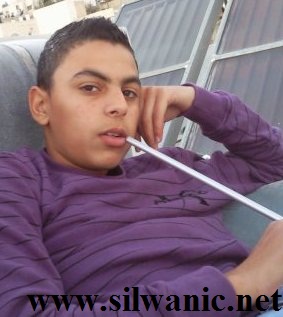Tag: Demonstration
-
Injured Jerusalem teen dies of wounds
14 May 2011 | Popular Struggle Coordination Committee Milad Ayyash, the 17 year-old who was critically injured yesterday in East Jerusalem passed away at the Muqassed Hospital, after all attempts to save his life failed. The killing comes as tensions soar over the upcoming Nakba anniversary. The violent response of Israeli authorities to the protest…
-
Teen critically injured as Israel cracks down on Nakba demos
13 May 2011 | Popular Struggle Coordination Committee Updated 14 May 2011: Milad Ayyash died of his injuries reported below. 17 year-old was critically injured from live fire in East Jerusalem. An American protester suffered serious head injury after being hit by a tear-gas projectile shot directly at him from close range. Israeli military and…
-
Villagers of Jaloud protest their electricity being cut
13 May 2011 | International Solidarity Movement Today the village of Jaloud held a non-violent demonstration against the decision of Israel to cut off the electricity of seven families living on the outskirts of the village. The villagers and several international organizations marched from the village to the aforementioned houses carrying banners protesting the theft…

